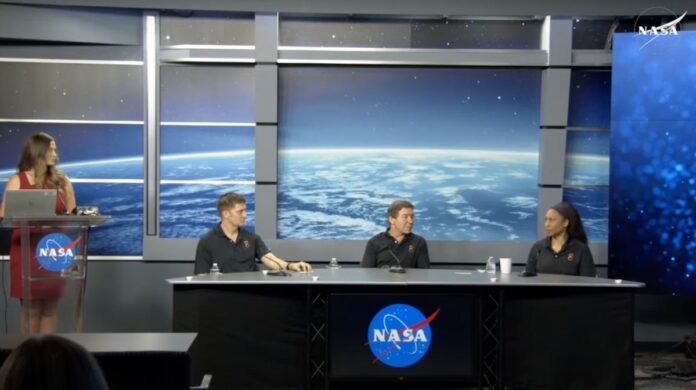NASA is not yet ready to tell us why one of its astronauts was hospitalized shortly after returning to Earth last month.
That astronaut was one of the four members of SpaceX’s Crew-8 mission to the International Space Station (ISS), which ended with a splashdown off the coast of Florida on Oct. 25.
Everything appeared to go well with the landing. Shortly thereafter, however, all four astronauts — NASA’s Matthew Dominick, Michael Barratt and Jeanette Epps, and Alexander Grebenkin of Russia’s space agency Roscosmos — were taken to a Florida hospital for evaluation.
Three of the four astronauts were released that same day, but one remained overnight “as a precautionary measure,” agency officials said in an update on Oct. 25. That fourth astronaut was discharged from the hospital the next day and is doing fine, NASA explained in an Oct. 26 blog post.
Related: SpaceX Crew-8 astronaut hospitalized in Pensacola after Dragon splashdown, in ‘stable condition’
Those updates identified the astronaut in question as a NASA spaceflyer. But they did not give a name, nor did they specify the malady or its symptoms, citing the need to protect the astronaut’s privacy. And, nearly two weeks later, those concerns still hold.
“Spaceflight is still something we don’t fully understand; we’re finding things that we don’t expect sometimes,” Barratt, Crew-8’s pilot, said during a press conference on Friday (Nov. 8).
“This was one of those times, and we’re still piecing things together on this,” said Barratt, who’s also a medical doctor. “So, to maintain medical privacy and to let our processes go forward in an orderly manner, this is all we’re going to say about that event at this time.”
However, once those processes have been completed, NASA will let us know what happened, Barratt added.
“Space medicine is my passion, to be real honest, and how we adapt, how we experience human spaceflight is something that we all take very seriously,” he said. “In the fullness of time, we will allow this to come out and document it.”
Crew-8 lasted 235 days — significantly longer than a typical ISS crew rotation, which is about six months. But other astronauts have stayed away from their home planet for longer stretches than Barratt, Dominick, Epps and Grebenkin did.
The record for a continuous space stay, for example, is 437 days, set by cosmonaut Valeri Polyakov aboard the Soviet-Russian Mir space station in 1994-1995.


